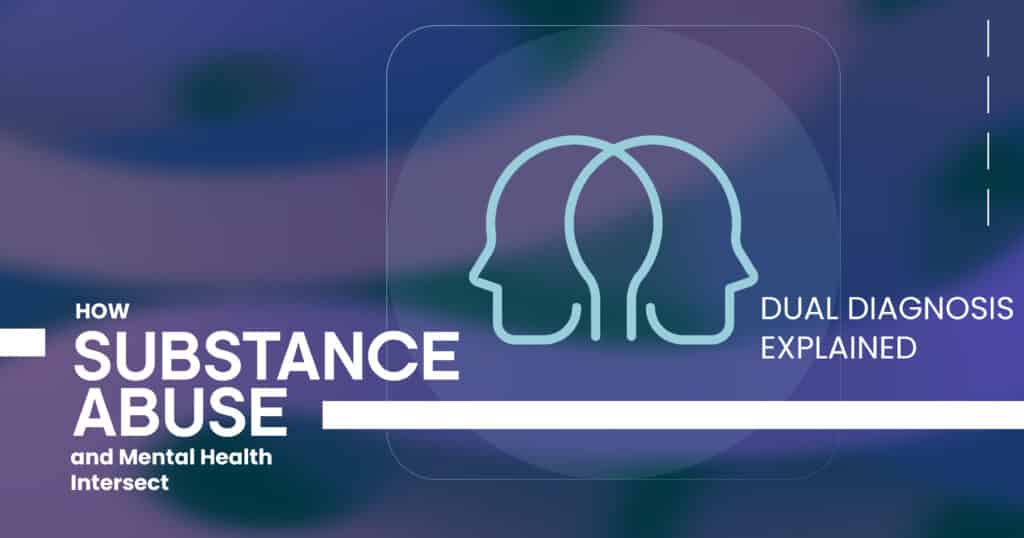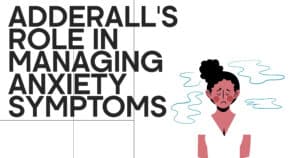Understanding how substance abuse and mental health intersect is crucial for anyone navigating the complex world of dual diagnosis. Dual diagnosis, also known as co-occurring disorders, refers to the condition where an individual has both a substance use disorder and a mental health disorder simultaneously.
Essential Takeaways
- Dual Diagnosis Combines Mental Health and Substance Abuse Disorders Effective treatment requires addressing both conditions together for better outcomes.
- Integrated Treatment Approaches are Key Combining mental health and substance abuse therapies ensures comprehensive care and better management of dual diagnosis.
- Support Systems and Resources are Vital Strong support networks and access to specialized resources significantly impact successful treatment and recovery.
This dual challenge can complicate treatment and recovery, making it vital to address both conditions in an integrated manner. Let’s dive into the intricacies of dual diagnosis, explore its impact, and discuss effective treatment strategies.
What is Dual Diagnosis?
Definition and Overview
Dual diagnosis refers to the coexistence of a mental health disorder and a substance use disorder in the same individual. This means that a person might struggle with both an addiction to substances like alcohol or drugs and a mental health condition such as depression, anxiety, or bipolar disorder.
The interaction between these two issues can create a complex and challenging scenario for both diagnosis and treatment.
According to the Substance Abuse and Mental Health Services Administration (SAMHSA), nearly 9.5 million adults in the U.S. have both mental health and substance use disorders. The prevalence of dual diagnosis highlights the importance of understanding this intersection and developing effective treatment approaches.
Common Mental Health Disorders with Substance Abuse
Certain mental health disorders frequently occur alongside substance abuse. Understanding these common co-occurring conditions helps in recognizing patterns and symptoms:
- Depression: Individuals with depression may turn to substances as a way to self-medicate their emotional pain or numb feelings of sadness and hopelessness.
- Anxiety Disorders: People with anxiety disorders might use substances to alleviate symptoms like excessive worry or panic attacks, leading to a dangerous cycle of dependence and worsening anxiety.
- Bipolar Disorder: Those with bipolar disorder may use substances to manage mood swings, but this often exacerbates the instability in their emotions and overall functioning.
- Post-Traumatic Stress Disorder (PTSD): Individuals with PTSD might use substances to escape traumatic memories or alleviate symptoms such as flashbacks and hypervigilance.
Each of these conditions can interplay with substance abuse in unique ways, influencing both the severity and treatment of dual diagnosis.
The Interplay Between Substance Abuse and Mental Health Disorders
How Substance Abuse Affects Mental Health
Substance abuse can profoundly impact mental health in several ways. For example:
- Chemical Changes: Many substances alter brain chemistry, which can exacerbate or trigger mental health disorders. For instance, stimulants like cocaine can lead to increased anxiety and paranoia, while depressants like alcohol can worsen symptoms of depression.
- Cognitive Impairments: Chronic substance use can impair cognitive functions such as memory and decision-making, which may complicate existing mental health issues or lead to new ones.
- Emotional Instability: Substance abuse can lead to mood swings and emotional instability, further aggravating mental health conditions and making it difficult for individuals to manage their emotions effectively.
How Mental Health Disorders Influence Substance Abuse
Conversely, mental health disorders can also drive substance abuse:
- Coping Mechanism: Individuals with mental health disorders may use substances as a coping mechanism to deal with emotional pain, stress, or symptoms of their mental illness. This self-medication can lead to a dependency on substances.
- Escapism: Those struggling with conditions like PTSD or depression may turn to substances to escape from intrusive thoughts or persistent feelings of sadness and hopelessness.
- Increased Vulnerability: Mental health disorders can impair judgment and increase susceptibility to substance abuse, making it more challenging to resist substance use and maintain sobriety.
The Cycle of Dual Diagnosis
The relationship between substance abuse and mental health disorders often creates a cyclical pattern where each condition exacerbates the other. For instance, substance abuse can worsen symptoms of mental health disorders, leading individuals to use substances more frequently. This cycle can make recovery more challenging and require an integrated approach to treatment.
Diagnosis and Assessment of Dual Diagnosis
Importance of Accurate Diagnosis
Accurate diagnosis is crucial for effective treatment of dual diagnosis. Misdiagnosis or incomplete diagnosis can lead to ineffective treatment plans and prolonged suffering. It’s essential to recognize both mental health and substance use disorders to develop a comprehensive treatment strategy that addresses both issues.
Assessment Tools and Techniques
Professionals use various assessment tools and techniques to diagnose dual diagnosis:
- Clinical Interviews: Detailed interviews with patients help clinicians understand their history of substance use and mental health symptoms. These interviews provide insight into the nature and severity of both conditions.
- Standardized Assessments: Tools like the Substance Abuse Subtle Screening Inventory (SASSI) and the Mini International Neuropsychiatric Interview (MINI) can help in evaluating substance abuse and mental health disorders.
- Self-Report Questionnaires: These questionnaires, filled out by patients, provide valuable information about their symptoms, substance use patterns, and overall mental health.
A comprehensive evaluation that includes these tools can help ensure an accurate diagnosis and effective treatment plan.
Treatment Approaches for Dual Diagnosis
Integrated Treatment Models
Integrated treatment models are designed to address both substance abuse and mental health disorders simultaneously. This approach is essential because treating one condition without addressing the other can lead to incomplete recovery and increased risk of relapse.
- Coordinated Care: Integrated treatment involves a coordinated approach where mental health professionals and addiction specialists work together to create a unified treatment plan. This ensures that both conditions are treated concurrently and comprehensively.
- Holistic Approach: Integrated treatment models often incorporate various therapeutic modalities, including medication, therapy, and lifestyle changes, to address the complex needs of individuals with dual diagnosis.
Evidence-Based Therapies
Several evidence-based therapies are effective in treating dual diagnosis:
- Cognitive Behavioral Therapy (CBT): CBT helps individuals identify and change negative thought patterns and behaviors related to both substance abuse and mental health disorders. It is effective in managing symptoms and improving coping skills.
- Dialectical Behavior Therapy (DBT): DBT is particularly useful for individuals with mood disorders and substance abuse issues. It focuses on teaching skills for emotional regulation, distress tolerance, and interpersonal effectiveness.
- Medication-Assisted Treatment (MAT): MAT combines medication with behavioral therapy to treat substance use disorders. It can help manage withdrawal symptoms and reduce cravings, supporting overall recovery.
Importance of Support Systems
Support systems play a critical role in the recovery process for individuals with dual diagnosis. Family, friends, and support groups can provide emotional support, encouragement, and practical assistance. Building a strong support network helps individuals stay motivated and committed to their treatment plan.
Challenges in Treating Dual Diagnosis
Barriers to Effective Treatment
Several barriers can hinder effective treatment of dual diagnosis:
- Stigma: Stigma surrounding mental health and substance abuse can discourage individuals from seeking help or adhering to treatment.
- Limited Resources: Access to specialized treatment and support services can be limited, particularly in underserved areas.
- Complexity of Conditions: The complexity of managing both substance abuse and mental health disorders simultaneously can make treatment challenging and require specialized expertise.
Managing Relapse and Recovery
Relapse is a common challenge in the recovery process for individuals with dual diagnosis. It’s important to recognize that relapse does not mean failure but rather an opportunity to adjust the treatment plan and strategies. Ongoing care, support, and monitoring are essential for managing relapse and ensuring long-term recovery.
Finding Help
Finding the right treatment resources and support is crucial for managing dual diagnosis:
- Treatment Centers: Look for treatment centers that specialize in dual diagnosis and offer integrated treatment models.
- Support Groups: Join support groups that focus on both substance abuse and mental health disorders to connect with others facing similar challenges.
- Online Resources: Explore online resources and forums for additional support and information on dual diagnosis.
Advocacy and Awareness
Advocacy plays a vital role in improving treatment and support for dual diagnosis. Supporting initiatives that raise awareness about dual diagnosis and advocating for better access to resources can help individuals receive the care they need.
Conclusion
Understanding and addressing dual diagnosis is essential for effective treatment and recovery. By recognizing the interplay between substance abuse and mental health disorders, seeking accurate diagnosis, and utilizing integrated treatment approaches, individuals can achieve better outcomes and improve their quality of life.
If you or someone you know is struggling with a dual diagnosis, reach out for help and explore the resources available to support your journey towards recovery.
Call to Action: If you or a loved one is facing dual diagnosis challenges, don’t hesitate to seek professional help. Reach out to a specialist who can provide comprehensive treatment and support for both substance abuse and mental health disorders.
FAQs
1. What is dual diagnosis?
Dual diagnosis is when an individual has both a mental health disorder and a substance use disorder simultaneously, requiring integrated treatment for both conditions.
2. How does substance abuse affect mental health?
Substance abuse can worsen mental health issues by altering brain chemistry and increasing emotional instability, complicating the management of mental health disorders.
3. What are common mental health disorders with substance abuse?
Common disorders include depression, anxiety, bipolar disorder, and PTSD. These conditions often interact with substance use, making treatment more complex.
4. What treatments are effective for dual diagnosis?
Integrated treatment approaches, such as Cognitive Behavioral Therapy (CBT), Dialectical Behavior Therapy (DBT), and Medication-Assisted Treatment (MAT), effectively address both conditions simultaneously.
5. How can individuals find support for dual diagnosis?
Seek specialized treatment centers with integrated care models, join support groups, and explore online resources for comprehensive support and information.







